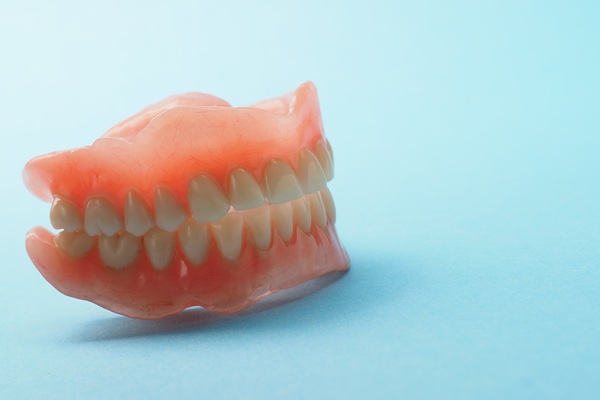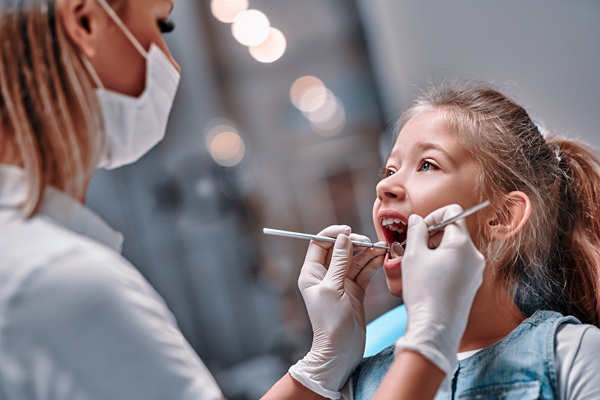What are the Different Types of Tooth Wear?

A person's teeth are the strongest part of the human body, but that does not mean you will not have to deal with tooth wear from time to time. Natural wearing down of teeth occurs slowly over a lifetime even when people practice good oral hygiene.
However, there are also many things that can facilitate the wearing down of teeth. This is an abnormal breakdown of teeth structures and is typically caused by existing dental issues or having habits that are detrimental to the condition of teeth.
Understanding tooth wear and tear
There are three main classifications when it comes to teeth structures wearing down: dental abrasion, dental attrition, and dental erosion. Let us take a look at these different types of tooth damage in more detail:
1. Dental abrasion
Dental abrasion occurs when a foreign body comes in contact with teeth surfaces. This damage can be the result of brushing too hard, chewing on hard items like ice, or bad habits like opening bottles with the teeth or biting fingernails. Dental abrasion can also be caused by using low-quality toothpaste since these can be very abrasive as well.
2. Dental attrition
Attrition occurs when the teeth are worn down by excessive or abnormal contact with other teeth. Bruxism – commonly called teeth grinding – can cause serious damage to a person's teeth as it puts excessive amounts of stress on them. This leads to increased wear on the teeth.
3. Dental erosion
This damage is the most common type of tooth wear. It is the result of tooth structures being broken down by the acids in the person's mouth. Bacteria in a person's mouth can convert food particles into acids, and specific food items like sugar and citrus fruits are highly acidic.
Dental erosion can also be caused by health issues like acid reflux disease, bulimia, or anorexia.
Keeping tooth decay under control
Keeping tooth decay under control helps to maintain the integrity of teeth structures. Fortunately, many things can be done to prevent erosion and keep it to a minimum. Some of them include:
1. Practice good oral hygiene
Having good oral hygiene goes a long way when a person takes proper care of their teeth. Teeth should be brushed at least twice each day, and dental floss should be used at least once a day. This routine helps to reduce the plaque and bacteria count in the person's mouth. Using an antibacterial mouthwash is also recommended since this helps to reduce bacteria, freshen breath, and re-mineralize teeth with essential nutrients.
2. Use a mouth guard
Patients dealing with involuntary habits like teeth grinding can reduce the damage done to their teeth by using a night guard. This device helps to reduce the stress placed on teeth when grinding.
3. Regular visits to the dentist
Regular visits to the dentist help patients get rid of tooth-damaging tartar. It also gives the oral professional a chance to detect developing issues before more severe damage is done.
When was the last time you visited a dentist? Schedule a consultation today!
Having a dental professional take a look at your teeth and oral health is the best way to get answers. This can help in getting personalized answers and explanations about your oral health and any issues you may have. We help in guiding and answering patients questions every day, and would love to do the same for you!
For more information or to schedule an appointment with Sun Valley Dental Care, request an appointment in our El Cajon dental office here: http://sunvalleydentalcare.com. Or call us at (619) 413-1121.
Recent Posts
Dental restorations are a great way to improve oral health and the way the smile appears. One of the most common dental restoration options is dental veneer placement. According to WebMD, dental veneers are routinely used to fix teeth that are discolored, worn down, chipped, misaligned and even severely gapped, all of which classify as…
A dental restoration is administered by dentists to help patients repair teeth that have become damaged from injuries or cavities. There are a lot of different dental restoration options, each benefiting patients in different ways. Knowing which procedure is best requires careful consideration and the assistance of a dentist. Ready to learn more?The following information…
Tooth enamel is the protective barrier along the outermost portion of the teeth. This shield safeguards the dentin and sensitive inner portion of the teeth from damage. If the enamel is compromised or simply wears away as time progresses, it will cause some discomfort and make the inner portion of the tooth that much more…
Many people will lose at least one tooth at some point in their lives, which can lead to oral health issues. Fortunately, a restorative dentist can replace missing teeth in several ways. These options can help patients restore the function and appearance of their smiles.Bone tissues need to be regularly stimulated to remain healthy, as…


